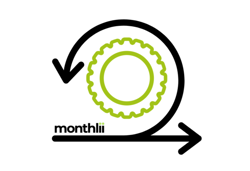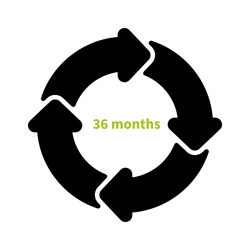It's no secret that UK food and beverage manufacturers have been struggling with cost increases in recent years. The number of insolvencies in this sector is disproportionately larger than other major industries, with a 53%* increase in manufacturing.
Following the exit from the EU, a global pandemic, and the war in Ukraine, subsequently followed by increases in inflation, UK manufacturers are struggling to balance their bottom line. Despite the underlying causes being in the past, the knock-on effects are still causing huge challenges to UK manufacturers.
What are the biggest cost concerns for our manufacturers?
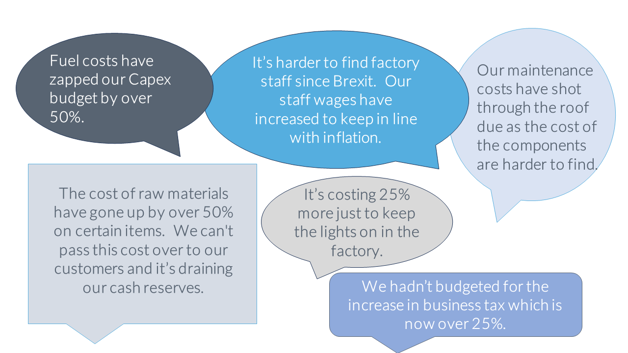
We looked at a balance sheet from a small-sized food production company in Yorkshire and looked at the difference in operating costs since 2021.
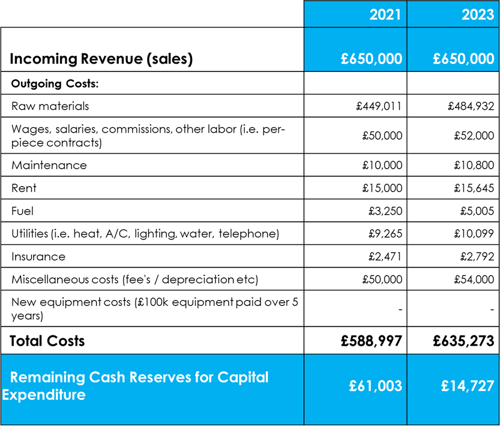
When it comes to cash reserves this business has seen a shattering 24% decrease. This business in particular has not been as affected as the wider industry when it comes to a hike in increases. According to the Office for National Statistics, (ONS) the cost of imported food materials has increased by over 25%, with other parts and equipment increasing by over 9%.
What can manufacturers do about cost increases?
We've seen increased reports of “Shrinkflation” (the practice of reducing the weight of the end product whilst keeping the retail price the same.) According to reports by "Which?" and "This is Money", consumers are seeing items such as chocolate, snack bars, cheese, and crisps reduce in size by up to 50%. Recently the BBC reported Mars Inc., has reduced their Galaxy smooth milk chocolate bars by 10% whilst keeping the retail price the same. However, this is not an option for all manufacturers wanting to protect their brand identities, balance cash flow, and retain cash for future production investments and emergencies.
Improving efficiency across the business, including production lines and equipment must be key when it comes to protecting the bottom line.
Invest to improve efficiency
Many UK manufacturers are investing in the following areas in order to improve efficiency and reduce waste in their production lines. Using old equipment can lead to leaks and spills, overconsumption, failed inspections, and stoppages in the line. Despite the cost of investment, it will eventually reduce costs in the long run, in particular by investing in sustainable energy resources such as solar power.
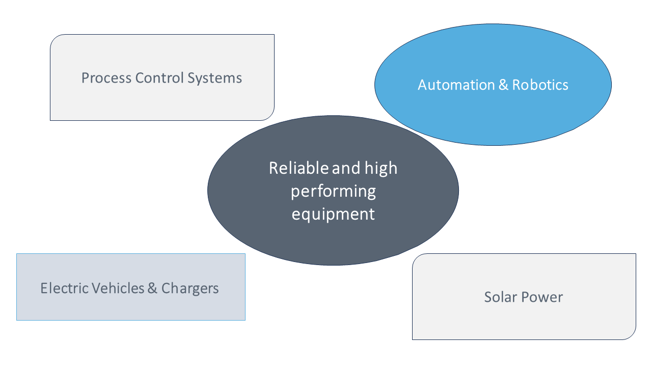
Reality Finance had a recent customer who made the decision to make long-term savings in their energy bills. As part of this process, the company is investing close to £23,000 in solar energy creation for their factory. The business operates in the South of England where their roof is South Facing, ideal for harvesting solar energy. Reality funded the cost of the solar solution over five years via a Hire Purchase finance agreement. They have since been able to run the factory using energy created by the new solar system from the first day of installation.
How can UK manufacturers still invest with less cash reserves
Businesses don’t need to drain their remaining cash reserves to invest. They can still acquire new equipment now but pay overtime by using funding facilities such as Hire Purchase, or Lease to Buy.
At Reality Finance, we can include future maintenance agreements, installation, and training into a monthly or quarterly payment bundle.
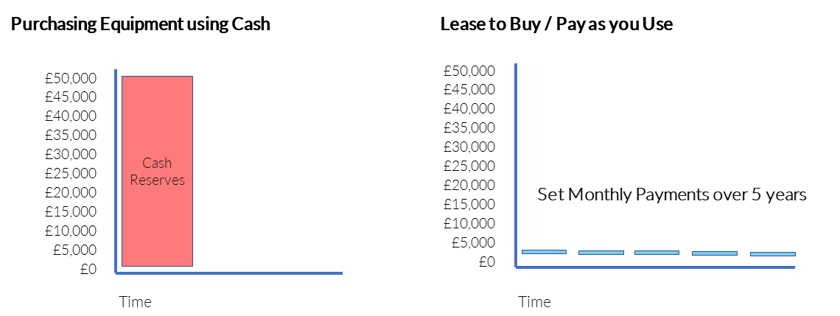
Other benefits of leasing include:
- Full ownership at the end of the term
- Frees up cash reserves
- Fixed monthly outgoings including maintenance costs
- Obtain advanced equipment on a budget
- Tax Sense: 100% Tax Allowable and VAT can be reclaimed
Reality Finance is a key supplier of funding solutions to the UK Food and Manufacturing Industry.

* Research accredited to the Financial Times.
